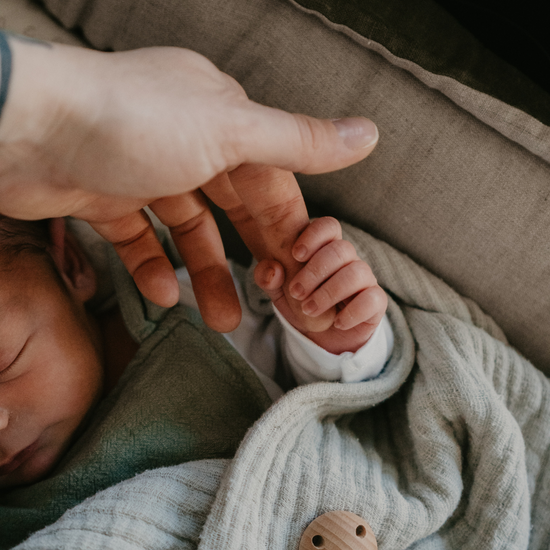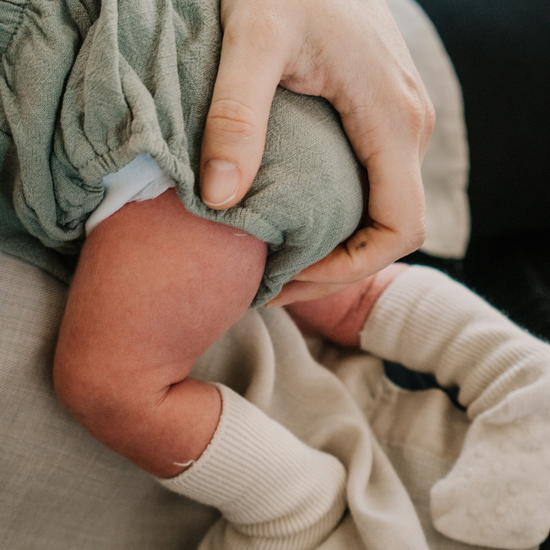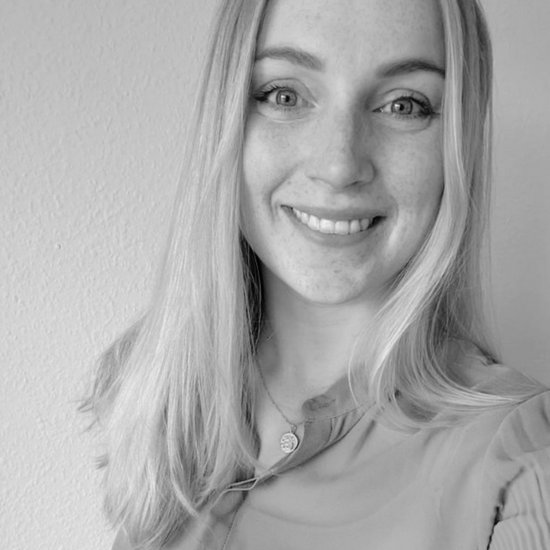6 Pieces of Advice for the New Mother from Midwife Lærke
Dear you, dear mother.
It may be that you have not yet given birth. It may be that you are holding your newborn in your arms. It may be that you have a child who is 9 months old, younger, or older. Or it may be that you have several children. Regardless of who you are and how much experience you have in the role of a mother, you deserve to know that you deserve the best. If I know you well, you do so much for everyone else and think too little of yourself. Therefore, I want to give you a loving reminder that you are loved, appreciated, and completely indispensable.
I have gathered 6 good pieces of advice that I myself have appreciated others telling me before I held a baby in my arms, but also some points that are good to remember even if you have become more experienced in the role of a mother. These are advices that I also recommend to the couples I come across as a midwife, but which now make even more sense after becoming a mother myself.
-
1. The first period after giving birth is meant for recovery, establishing feeding routines - whether it's breastfeeding or bottle-feeding - sleeping, eating, looking into your partner's eyes, and enjoying whoever has been born. During Covid-19, where people were not allowed to have visitors in the hospital and reduced the number of guests at home, we saw that new families had more peace to recover and establish feeding routines. If you have guests, agree in advance on how long they can stay with you. Sometimes there needs to be clarity: "You are welcome to come from 1-2 pm. For one hour. You can bring lunch." There is something magical about your newborn that makes your guests forget time and place
-

-
2. Start by setting boundaries. From the moment you hold that positive pregnancy test, speak up if people are crossing your boundaries with "good" and well-meaning advice or stories. For some reason, with your beautiful pregnant belly, you always have to listen to the most traumatic birth stories or talk about stillbirths, and why should you do that if it does more harm than good? If you're into talking about the good and the bad aspects of having children, then go ahead and join the conversations, but it's NOW that you need to learn your boundaries, because I promise you that they will be crossed in the future (unfortunately). When holding your baby, you will also hear all sorts of breastfeeding stories and parenting styles, and doubt whether what you're doing is good enough. Here's a sentence you need to learn: "Thank you for your advice. We do insert your own sentence in our own way, and we've found that works best for us." When I held my daughter in my arms, I could really feel the generation gap and everyone's different opinions and attitudes - from my 78-year-old grandmother's to my 55-year-old mother's to my 30-year-old peers'.
-
3. You are vulnerable. A role and identity shift results in vulnerability regardless of the number of children. Your way of thinking, caring, and viewing life; it's as if the heart in your chest needs to find a new way to beat. Additionally, hormonal changes also increase your vulnerability. Remember that tears, insecurity, and intense emotions are normal in periods - and I emphasize in periods (meaning, it's not normal if it's constant). Remember to take a break during these periods. Sometimes, you need more peace to cope with being a mother, and that's perfectly okay.
-

-
4. You are a team. Remember that at some point, you chose to have a baby with your partner, because you will not only live as parents from the day your child is born, you should also remember to look deeply into each other's eyes as lovers and remember the reason why you chose to have a child together in the first place. Make an expectations alignment with both yourself and your partner - and remember to renew this. Do this already during pregnancy; What challenges do you see as a parent? What is the division of roles at home? How do you think you will be as parents? Each of you should mention three things that you want to bring to your parenting, and perhaps three things you want to do differently from your own childhood. Remember to make regular expectations alignments about your parenthood - preferably take a monthly talk to check how you are doing, and if there is anything that is not working for you. Better to address challenges early on rather than waiting until they pile up.
-
5. Don't expect your body to bounce back to its pre-pregnancy state right away. You're not the same person physically or mentally, so why put pressure on yourself to quickly look the same? Take that pressure off your shoulders. When you feel more in control of being a mom, then you can start exercising.
6. Remember to take breaks in your everyday life. This applies to your partner, but especially to you as a mother. Whether your break is to sit with your phone in peace, take a walk alone with podcasts in your ears, take a bath and use some lovely skincare products, or something else entirely, it's what you need to prioritize. Don't forget about yourself just because you're someone's mom. Remember yourself - every day! -

With love,
Lærke



